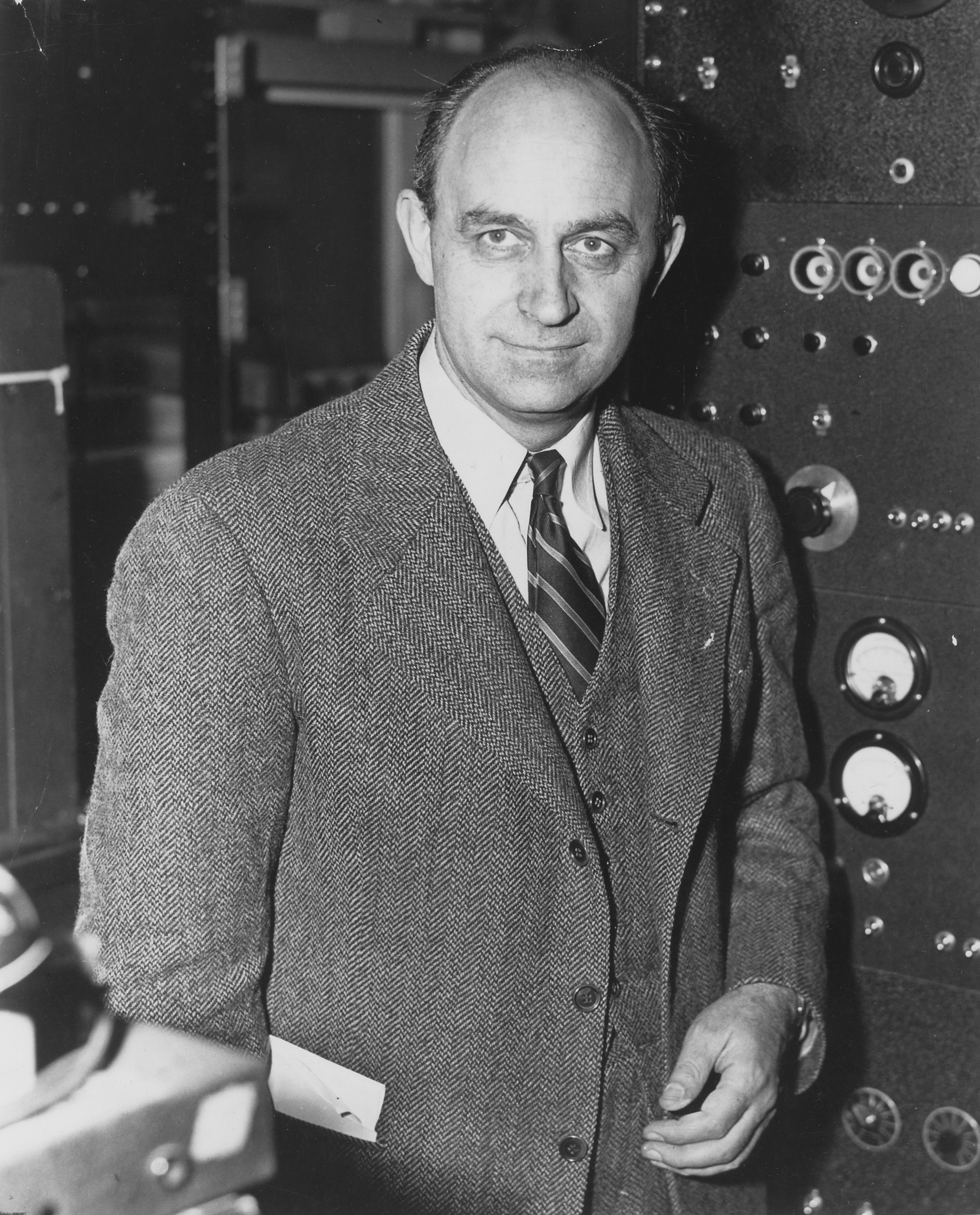Enrico Fermi fue un físico italiano conocido por el desarrollo del primer reactor nuclear y sus contribuciones al desarrollo de la teoría cuántica, la física nuclear y de partículas, y la mecánica estadística. En 1938 Fermi recibió el Premio Nobel de Física por sus trabajos sobre radiactividad inducida y es considerado uno de los científicos más destacados del siglo XX.
Se lo reconoce como un físico con grandes capacidades tanto en el plano teórico como experimental. El elemento fermio, que fue producido en forma sintética en 1952, fue nombrado en su honor.
✵
29. septiembre 1901 – 28. noviembre 1954
